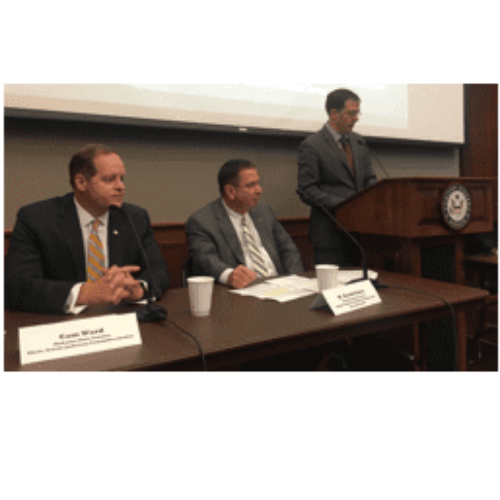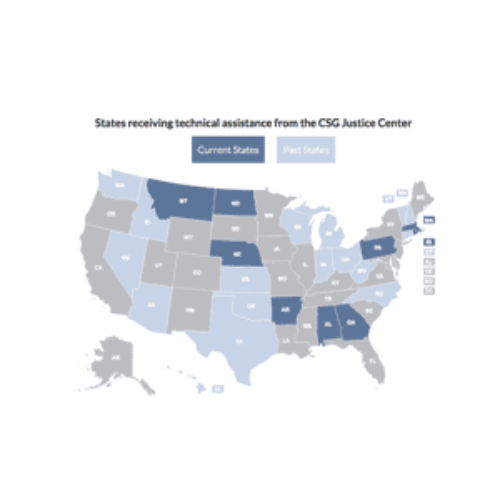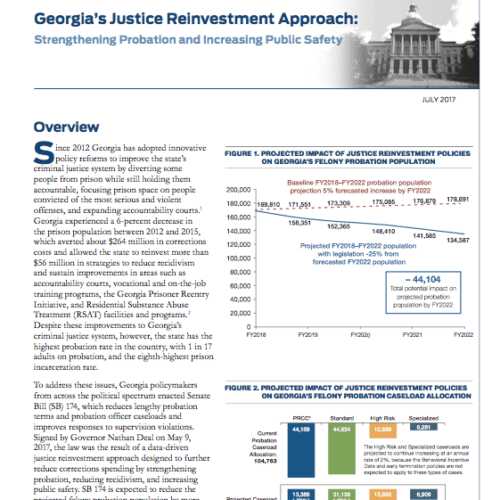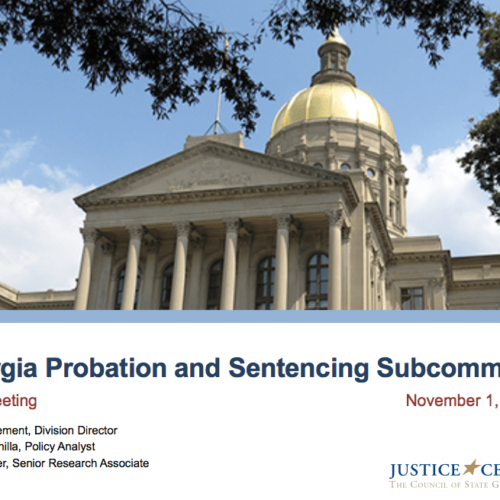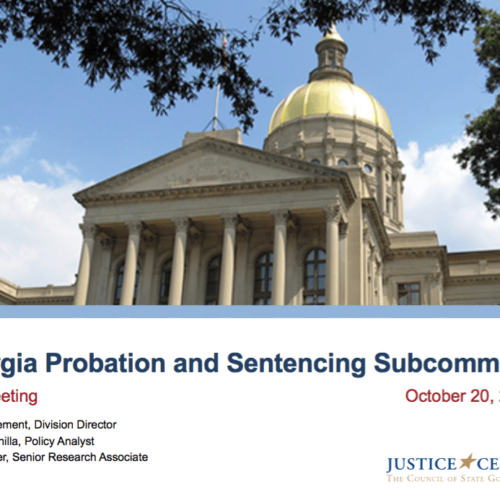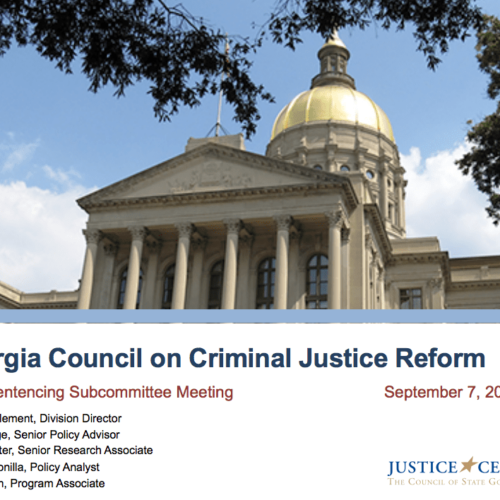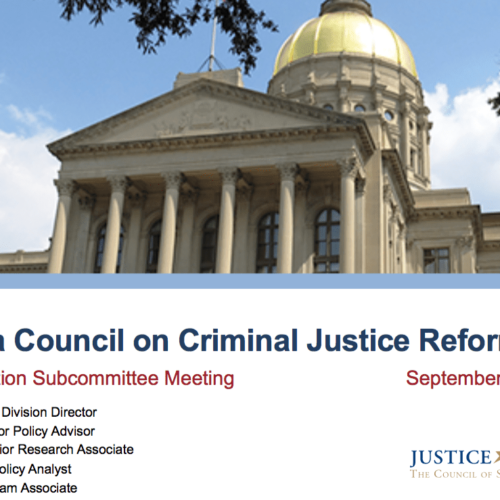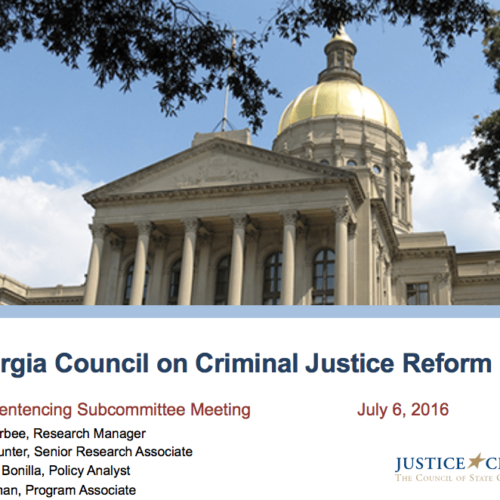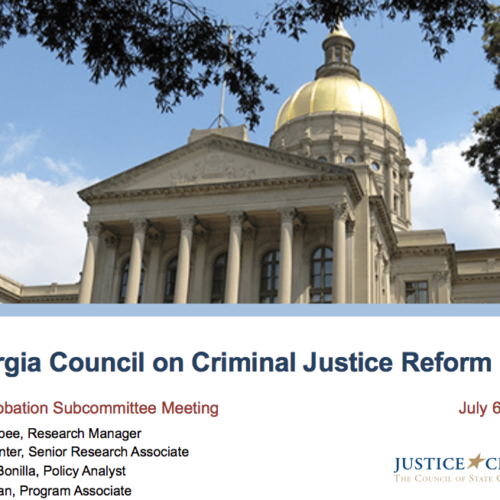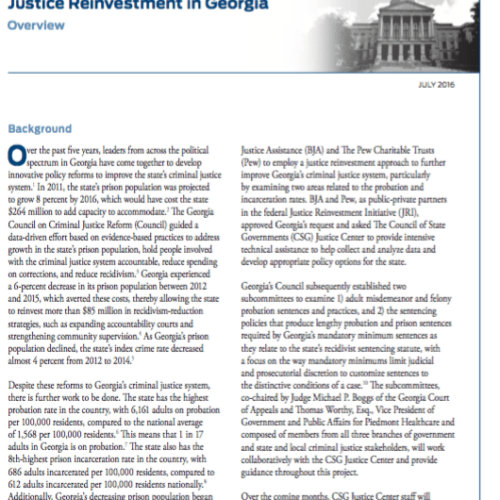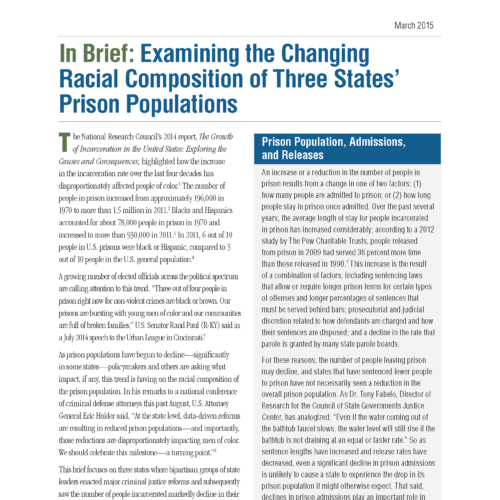Justice Reinvestment in Georgia
JRI 2012
Since Georgia’s first use of the Justice Reinvestment Initiative in 2012, the state has adopted innovative policies to improve the state’s criminal justice system by diverting some people from prison while still holding them accountable, prioritizing prison space for people convicted of the most serious and violent offenses, and expanding accountability courts.
Georgia experienced a 6 percent decrease in the prison population between 2012 and 2015, which averted about $264 million in corrections costs and allowed the state to reinvest about $57 million in strategies to reduce recidivism and sustain improvements in areas such as accountability courts, vocational and on-the-job training programs, the Georgia Prisoner Reentry Initiative, and Residential Substance Abuse Treatment (RSAT) facilities and programs.
The Problem
Despite these improvements to Georgia’s criminal justice system, however, the state had the highest probation rate in the country in 2014, with 1 in 17 adults on probation, and the eighth-highest prison incarceration rate.
How JRI Helped
In May 2016, state leaders requested that the CSG Justice Center assist the Georgia Council on Criminal Justice Reform (Council) in addressing challenges within the state’s criminal justice system. Georgia’s Council subsequently established subcommittees to analyze felony sentencing trends and the effectiveness of probation and develop recommendations. The subcommittees, composed of members from all three branches of government and state and local criminal justice stakeholders, met six times between July and November 2016 to review analyses and develop policy options for the Council’s consideration.
Senate Bill (SB) 174 codified the Justice Reinvestment policy framework developed by the Council and included policies to reduce lengthy probation terms and large probation caseloads, improve both the effect and cost-effectiveness of responses to probation and parole violations, and improve the handling of legal financial obligations for people on felony probation. SB 174 passed unanimously in both the Georgia House and Senate and was signed into law as Act 226 by then-Governor Nathan Deal on May 9, 2017.
Implementation and Impacts
The CSG Justice Center provided implementation assistance by coordinating a pilot of the state’s early termination from probation policy, conducting an analysis of the RSAT program, developing performance measures to monitor policy impacts, and facilitating the creation of a joint agency data dashboard.
Act 226 was expected to reduce the projected felony probation population by more than 44,000 people between 2018 and 2022. Act 226 was also projected to reduce the actively supervised felony probation population by 38 percent by shifting almost 30,000 people from active supervision to unsupervised status between 2018 and 2022.
From April 2016 to June 2020, Georgia’s active felony probation population declined 12 percent and contributed to a reduction in caseload size from 138 cases to approximately 93 cases per supervising officer. Georgia also increased the number of cases on unsupervised status by 68 percent between April 2016 and June 2020.
To further increase the impact of Act 226, the Georgia legislature passed Senate Bill 105, which was signed into law as Act 151 by Governor Brian Kemp on May 3, 2021. This follow-on legislation, which applies retroactively to existing probation cases and to cases sentenced after the effective date, requires an early termination review of probation cases provided that the following criteria have been met:
- Length of stay on supervision is longer than three years where a person has fully paid restitution.
- The individual has no non-traffic arrests.
- The individual has not been subject to a revocation in the preceding two years.















